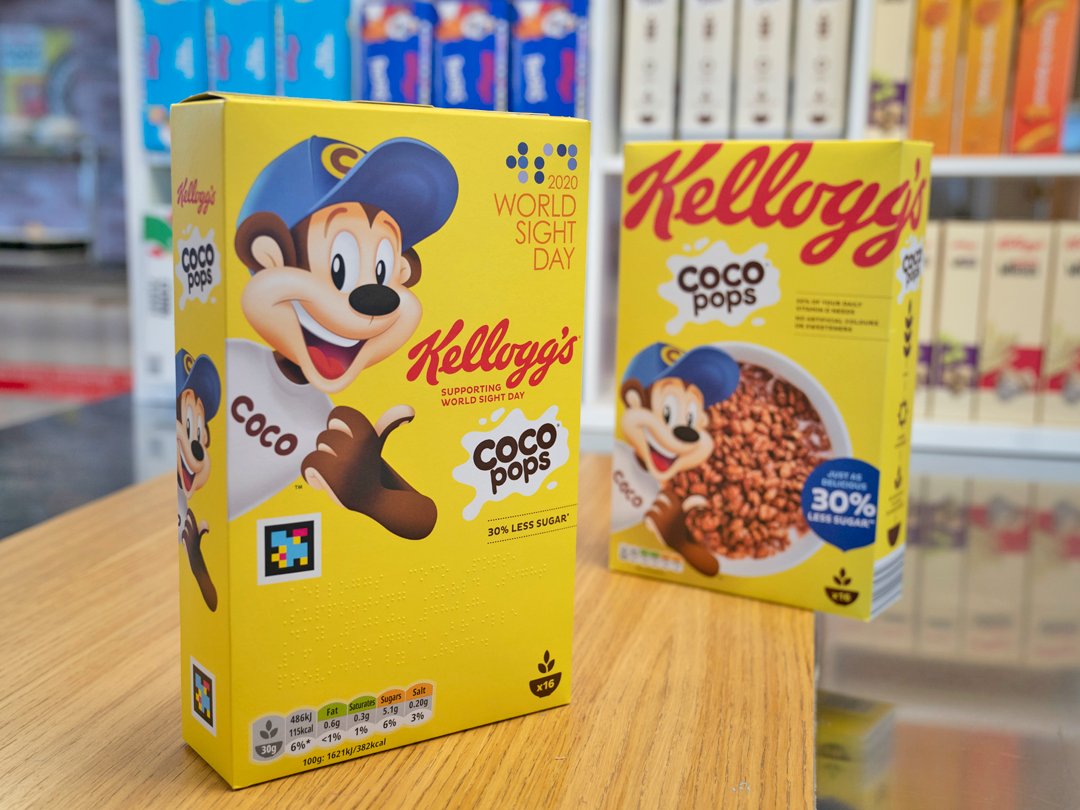
The new boxes have been created in partnership with the Royal National Institute of Blind People (RNIB) and feature UK-first technology that allows a smartphone to detect a unique on-pack code and playback labelling and allergen information to the user.
The trial comes after research from RNIB revealed that nine in ten blind and partially sighted people feel that information on food packaging is difficult or impossible to read.
The new technology, called NaviLens, can be used both in-store and in the home. It allows smartphones to pick up an on-pack code from up to three metres distance when a blind or partially sighted shopper points their device in the direction of the cereal box.
This then alerts the phone and the shopper can choose to have the ingredients, allergen, and recycling information read aloud to them – as well as reading it on their device using accessibility tools.
The technology is currently used across Barcelona, Madrid, and Murcia city’s transport systems, making the cities easier to navigate for thousands of visually impaired citizens, and has now been introduced in the UK for the first time as part of the Kellogg’s trial. This is also the first time NaviLens has been used on food packaging.
If successful, the business hopes to adapt more of its cereal boxes to include this technology.
Chris Silcock, Kellogg’s managing director, commented: “Over two million people in the UK live with sight loss and are unable to simply read the information on our cereal boxes. That’s why we partnered with RNIB to trial special boxes of Coco Pops with NaviLens technology - a first for food packaging. If the trial is a success, we would hope that it could appear on more of our cereal boxes for visually impaired shoppers to access.”
Marc Powell, strategic accessibility lead at RNIB, added: “Important information on packaging can often be in very small print, making it difficult for blind and partially sighted people to read. This can make shopping a real challenge, especially for those with specific dietary requirements – as they can’t see the all-important nutritional information.
“This trial with Kellogg’s using NaviLens technology has raised the bar in inclusive and accessible packaging design – allowing people with low or no vision to locate a product on the shelf and access all information about it completely independently for the very first time.”
The limited-edition World Sight Day Coco Pops cereal boxes are also embossed with braille and the on-pack information is in a larger font size.







